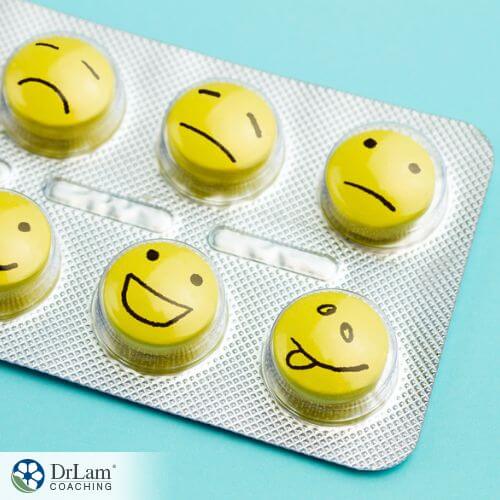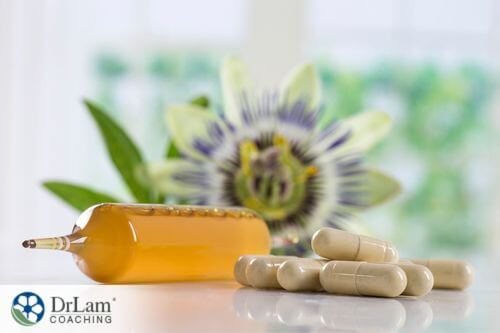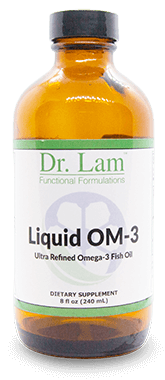 Antidepressants are necessary to maintain your mental health, and supplements are often recommended to support all kinds of health problems. However, some supplements interact with antidepressants and could be doing more harm than good. On the other hand, other supplements could help make your antidepressants more effective, and some act as natural antidepressants in and of themselves. Here's our guide to the best and worst combinations.
Antidepressants are necessary to maintain your mental health, and supplements are often recommended to support all kinds of health problems. However, some supplements interact with antidepressants and could be doing more harm than good. On the other hand, other supplements could help make your antidepressants more effective, and some act as natural antidepressants in and of themselves. Here's our guide to the best and worst combinations.
Note, in all cases, you should talk to your doctor before combining any supplements with antidepressants to avoid potentially dangerous side effects.
Some supplements interact with antidepressants negatively. These include:
As a stand-alone medication, St. John’s Wort has been shown to be just as effective as antidepressants at ameliorating depression symptoms. However, when you take St. John’s Wort along with a selective serotonin reuptake inhibitor (SSRI), the most commonly prescribed type of antidepressant, the result could be the development of serotonin syndrome. This condition causes chills, diarrhea, fever, and sometimes seizures.
Furthermore, St. John’s Wort is known to have some of the same negative side effects associated with conventional antidepressants. As such, it’s important to discuss with your healthcare professional how supplements interact with antidepressants.
Vitamin E supplements interaction with antidepressants is also a point of concern. In this case, the antidepressant medication may be poorly absorbed. For example, vitamin E disrupts the absorption of the antidepressant desipramine (Norpramin). While multivitamins are essential for everyday health, vitamin E levels in the body should be checked routinely if taking antidepressants.
If your anxiety or depression keeps you from sleeping, you may have taken valerian, a natural sleep aid. However, if mixed with prescription medication, it can trigger extreme drowsiness, making it very hard to wake up. Never combine it with anti-anxiety medications.
Some supplements interact with antidepressants positively and can cause them to work better. According to one international evidence review, certain nutritional supplements can boost the effectiveness of antidepressant meds (SSRIs, SNRIs, and tricyclics) for people with clinical depression. These include Omega 3 fish oils, S-adenosylmethionine (SAMe), B-12, methylfolate (bioactive form of folate), and also vitamin D. Other potentially helpful supplements include 5-HTP, passionflower, and magnesium.
Some healthcare providers recommend 5-HTP for depression. However, you should not attempt to take antidepressant medications and 5-HTP before first consulting with your healthcare practitioner. Proper supervision is necessary when taking both. The combination can cause serotonin syndrome, a serious health condition that can lead to mental changes, rapid heart rate, hot flashes, fluctuating blood pressure, and at worst, coma.
A few examples of antidepressant medications that could potentially interact with 5-HTP include SSRIs (Celexa, Lexapro, Luvox), Tricyclics (Elavil, Pamelor, Tofranil), and monoamine oxidase inhibitors (MAOIs), like Nardil and Parnate. Be cautious and avoid amino acid precursor over-supplementation when taking antidepressants.
S-adenosylmethionine (SAMe), a nutraceutical, has been found in several studies to be beneficial in enhancing the efficacy of antidepressants. SAMe works by targeting particular neurotransmitters located in the brain much like antidepressants, acting as a mood-boosting agent. Additionally, it has anti-inflammatory properties and strengthens the body’s immune system to help minimize symptoms of depression. Research indicates that SAMe may be an effective substitute to consider for persons who respond poorly to conventional antidepressants.
 Passionflower contains several active ingredients, including maltol and ethyl maltol, that exert anti-anxiety effects. If you are taking other antianxiety or antidepressant medications, it could potentially interfere with how they work to relieve symptoms. Specifically, it may heighten the effect of particular antidepressants (nonselective monoamine oxidase inhibitors), like Nardil and Parnate, and also benzodiazepine drugs.
Passionflower contains several active ingredients, including maltol and ethyl maltol, that exert anti-anxiety effects. If you are taking other antianxiety or antidepressant medications, it could potentially interfere with how they work to relieve symptoms. Specifically, it may heighten the effect of particular antidepressants (nonselective monoamine oxidase inhibitors), like Nardil and Parnate, and also benzodiazepine drugs.
Research has shown that magnesium has the potential to boost the effects of antidepressants. A 2017 study suggests that adding magnesium to your care plan rather than increasing the dosage of your antidepressant has the potential to be more beneficial. The benefits also appear to be stronger when taking an antidepressant and magnesium together. This is a good example of how supplements can interact with antidepressants for good.
Omega-3 is an essential fatty acid that is primarily present in fish oil and a few other sources. According to research, it has the potential to reduce symptoms of depression when taken along with antidepressants. Omega-3 boosts antidepressant efficacy by promoting certain processes. These include modulation, reuptake, degradation, and synthesis of the hormones norepinephrine, dopamine, and serotonin.These hormones areoften targeted in depression therapy.
According to research, omega-3 fatty acids may also aid in improving symptoms of depression linked to bipolar disorder. Besides taking an omega-3 fatty acids supplement, you could also increase your intake of fatty fish, such as salmon and sardines, and flaxseed and walnuts.
Vitamin D boosts healthy activity in areas of the brain, including the prefrontal cortex, hypothalamus, and substantia nigra—all of which plays a role in depression. A small body of studies suggests that taking vitamin D improves depressive symptoms. However, it appears that antidepressants could interfere with biological processes that impact the metabolism of vitamin D. This minimizes the levels of vitamin D in the body and has the potential to negatively impact bone health and muscle function. Thus, taking vitamin D supplements with antidepressants may help just to maintain basic levels of the vitamin.
Adrenal Fatigue Syndrome (AFS) is caused by prolonged exposure to chronic stress.
This causes your HPA axis to push out excessive cortisol, the stress hormone, that ultimately fatigues your NeurEndoMetabolic (NEM) Stress Response. This system is made up of six circuits of related organ systems that are responsible for responding to stress. As AFS progresses from a significant increase in cortisol levels, it reaches a stage where your adrenals are unable to keep up with the demand.
As such, the risk of burnout increases and your body increasingly produces less cortisol. The result could be depressive symptoms, among others.
Rather than opting for pharmaceutical antidepressants, a good alternative is natural antidepressants that can get your neurotransmitters firing, and also minimize the risk of serious side effects. Additionally, natural antidepressants place less pressure on your detoxification circuit and also support your adrenals, unlike conventional antidepressants.
SAMe is a natural solution for tackling the depressive symptom associated with AFS. It plays a role in encouraging proper physical and mental functions. Also, it’s important in proper Neuroaffect Circuit function. Furthermore, SAMe is a better alternative because research has shown it to be better tolerated than conventional antidepressants.
However, it’s especially important to talk with your healthcare professional about how supplements interact with antidepressants if you have AFS. Your body can be prone to paradoxical reactions with this condition.
If you are taking both supplements and antidepressant drugs, it’s important that you are aware of how supplements interact with antidepressants. Here are a few simple tips to consider.
 If you have been prescribed antidepressants and are interested in taking supplements, speak to your doctor before starting any new regimen. Your doctor can inform you of any likely interactions and safety concerns that you should know about. Also, be sure to share with your doctor all of the supplements you are taking if you are seeking care for depression.
If you have been prescribed antidepressants and are interested in taking supplements, speak to your doctor before starting any new regimen. Your doctor can inform you of any likely interactions and safety concerns that you should know about. Also, be sure to share with your doctor all of the supplements you are taking if you are seeking care for depression.
Not all supplements do what their labels say on the package. Make sure you do your research about any new supplement you are considering and discuss it with your doctor first.
When it comes to supplements, the standards are different from that of prescription medications. Supplements are unregulated by the Food and Drug Administration (FDA). As such, it’s important for you to pay careful attention to product labels. Ensure that the active and inactive ingredients are listed, along with the dosage.
Supplements interact with antidepressants both positively and negatively. It depends on the supplement that you are taking. Some can either boost the effects of your antidepressant meds, while others can make them less effective. Supplements can affect the way your antidepressant works, so be sure to talk to your doctor about any supplements you take or are considering and do your research about potential interactions.
If you are concerned about supplements affecting your antidepressant or would like more info on natural ways to alleviate or manage your depression, the team at Dr. Lam Coaching can help. We offer a free** no-obligation phone consultation at +1 (626) 571-1234 where we will privately discuss your symptoms and various options. You can also send us a question through our Ask The Doctor system by clicking here.

Transform Wellness with Liquid OM3: Find Balance Amid Antidepressants
Certain supplements can cause negative side effects and/or reduce the effectiveness of your antidepressant medication. However, other supplements interact with antidepressants positively, causing them to work better. Still others help replace missing vitamins and minerals that antidepressants can deplete.